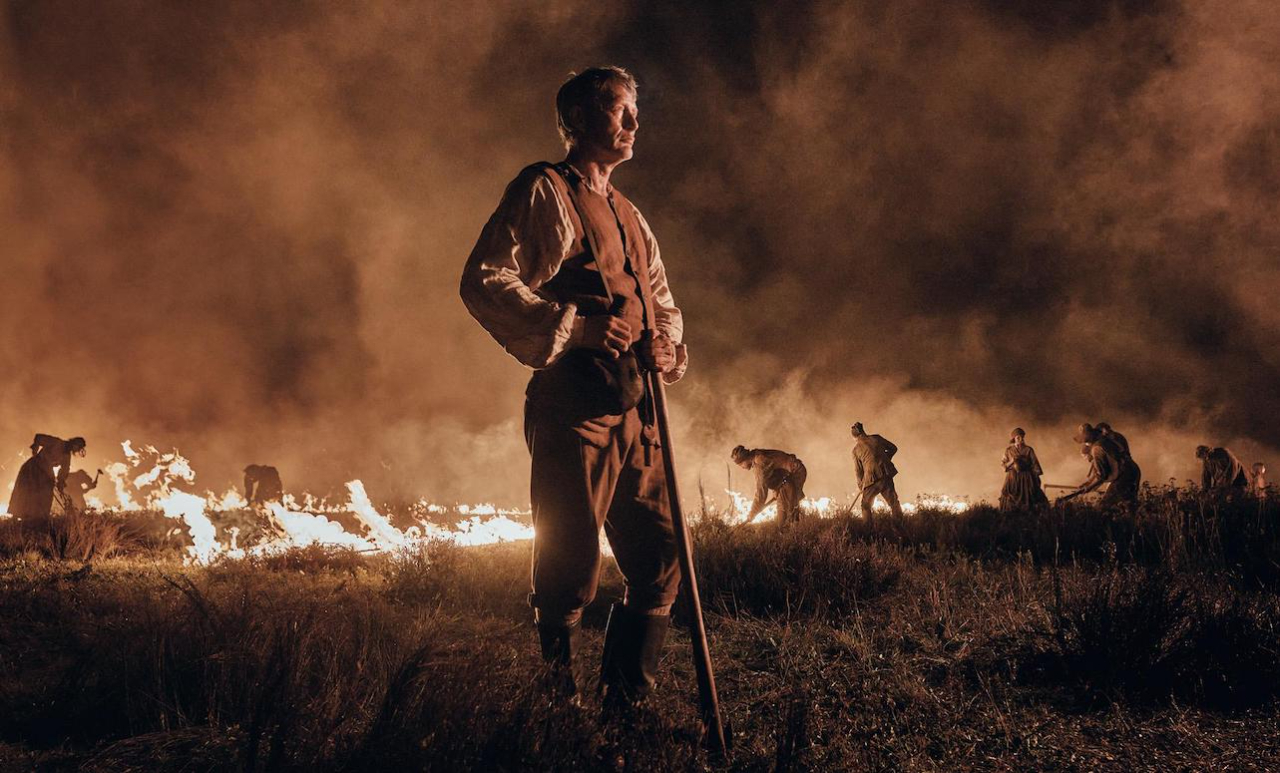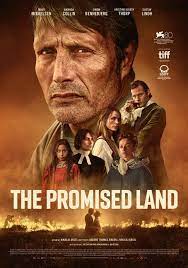The Promised Land (Bastarden)

“Life is not always what we expect it to be,” declares one of the characters of The Promised Land, the newest Dutch film with Mads Mikkelsen set in the second half of the 18th century. The statement also adroitly sums up its premise. Telling the story of impoverished soldier Ludvig Kahlen, who decides to cultivate the land on an unexploited heath to create something with longevity, Nikolaj Arcel’s film offers us a tale as old as time: you can want something really badly, but life might have other plans.
Ludvig is a righteous and simple man, who treasures the rules and considers them of the utmost importance. Maybe that’s why he makes an enemy out of relentless, ignorant landowner Frederik De Schinkel (Simon Bennebjerg), who believes that the heath belongs to him. The antagonist’s ascendancy isn’t authoritative or legally binding, but the collective fear and his eerie personality are enough for him to rule with an iron fist.
This is Mads Mikkelsen’s tour de force, as he proves how versatile he is as a thespian, and how his appearance holds additional power for the audience. As we learn more about Ludvig, the actor incrementally broadens the depth of his character. The film, by revealing the ebb and flow of the soldier’s life, enables Mikkelsen to reach new meaning in his performance.
Above all, this is an epic historical drama that scintillates with vigour and subtlety, presenting an enchanting and inconspicuous romantic theme. In The Promised Land, most fundamental aspects are related to the former genre; though it strongly relies on more classical tropes that we all know by heart (the leitmotif of an outcast succeeding while struggling with various nuisances, for instance), Arcel’s work is alluring in some unspoken way, as it elicits conflicting emotions and redesigns popular clichés. It might, at times, feel slightly verbose (it makes use of a naturalistic setup, and this is why it deliberately portrays every detail, like working the land), but there is plenty of riveting substance.
It quickly becomes apparent that the hero’s heath is a metaphor for his honour (as he is the eponymous “bastard,” Ludvig’s only dream is to demonstrate he is, indeed, worthy). That being said, either he will create the farm of his dreams, or he will die in the merciless conflict with Schinkel. In the film’s world, life is transient: “rejoice when the times are good, but always be prepared for various vicissitudes,” it cries. Ultimately, there is nothing in-between in life, which is why The Promised Land impeccably proves itself as a nihilistic and cameral drama with its consistent narrative austerity.
Jan Tracz
The Promised Land (Bastarden) does not have a UK release date yet.
Read more reviews from our Venice Film Festival 2023 coverage here.
For further information about the event visit the Venice Film Festival website here.
Watch the trailer for The Promised Land (Bastarden) here:

























Facebook
Twitter
Instagram
YouTube
RSS